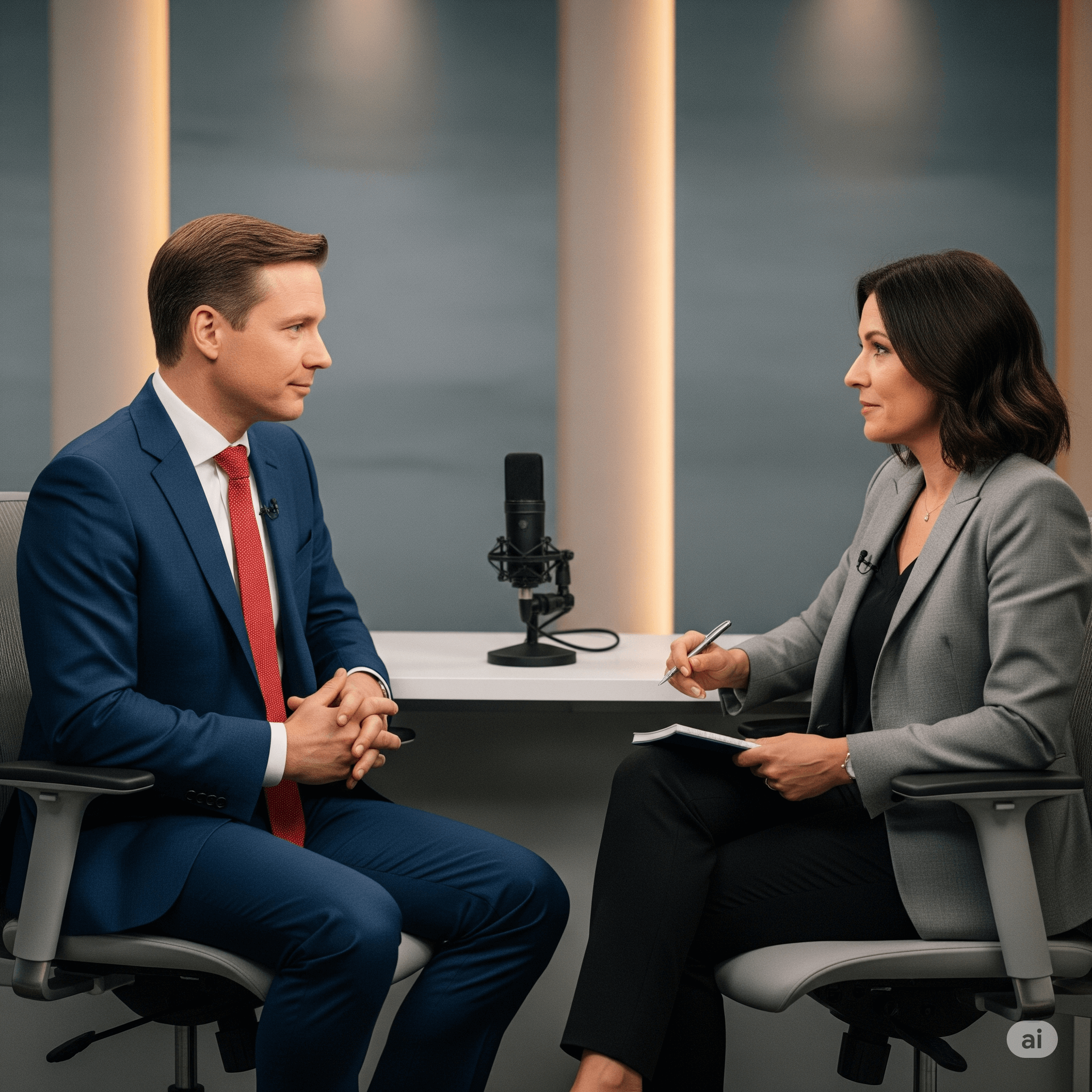Two-Hour Interview
In how many hours of an interview do you say everything you have to say?
About the world. About life. About any specific topic.
Watching interviews from channels like The Diary of a CEO, Joe Rogan, and recalling interviews from times past, I see that in just over two hours of interviewing, many people say almost everything they would like to say.
If we read a book by this interviewed person, the content will usually seem repeated. Most of the content had already been said in the interview.
We could, perhaps, change the saying that speaks of (planting a tree and) writing a book to "give a good interview" - it is no longer necessary to write a book.
If the idea was to leave knowledge for posterity, today interviews are as digitally recorded and accessible as books are.
When I write about a topic, I like to ask myself, sometimes: so what? What reasonably interesting thing can this hypothesis bring if confirmed?
I found something intriguing about this hypothesis.
If our content ends in a few hours of a good interview, how do we continue?
For example: what will an interviewee do after giving similar interviews on various media channels?
And in our lives outside the spotlight as well: our spouse, that cousin or neighbor who is always around, children, those who live with us more than a few hours of an interview, what keeps us attracted, considering that we already know, before long, all the main content of the person we live with a lot?
Oops, it's not the interview content that attracts us to long relationships - for more than a few hours, beyond a few dates in a row. I observe. I propose.
I could end with this realization that surprised me today when I started writing about this subject. It's a question to leave in the air.
But I will weave more hypotheses, continue my own conversation with this realization, assuming that the hypotheses are reasonably correct.
The flirting, the seduction, the kindness, the dance, the playfulness, without content, would be the ways to maintain long, very long, relationships.
If one day even playfulness, flirting, and seduction become boring, I'll leave that for another text, but I focus on the failure of the content of an interview to maintain long relationships.
In this sense, the usefulness of this type of observation is to realize that someone's content doesn't matter when it comes to living together for long periods. The content that would fit into a few hours of an interview doesn't matter.
What matters is anything else that is habitual: habitual kindness, or even habitual aggressiveness.
A parenthesis about scary behaviors mentioned here: when I talk about habitual bad behaviors, I am accepting that many people still need to reproduce a hostile family environment to feel at home, to feel really "familiar" with someone. Reproducing a childhood with its good and bad qualities as well, until they overcome this need. The videos of The School Of Life explain didactically about this, so I won't focus on this interesting behavior here. Suffice it to say that again it is about habitual behaviors, not interview content, even if they are so-called "bad" behaviors, such as habitual aggressiveness, rejection, coldness, detachment that a person may have and provide.
Returning to habitual behavior instead of interview content, it is curious to note that we want, then, what is habitual, and not the content that would fit into an interview of a few hours.
Einstein is the cliché example of brilliant interview content. His wife or spontaneous companion in general would admire not his content, but, I guess following this theory, would admire his good humor, or his dance to try to deepen, each day, that knowledge that even deepening always fits in a few hours of interview.
It is the dance, the everyday, that creates attractiveness in long relationships. I observe. I propose.
Here a new topic begins to emerge: novelty.
We are placing routine, daily habits, as the source of long-term coexistence.
How can we add novelty to the routine?
As we are analyzing, knowledge does not change, it always continues to fit into a few hours of interview, throughout life.
And does the routine change?
Here a question appears: even habitualness, the dance, the same gestures, the usual kindness, can also soon show their repetition, their little variability. Just as there is also, I propose, a lack of variation in our knowledge that fits in an interview.
So it ends up being left of my initial hypothesis that, if we need the search for novelty at certain times, this novelty should not come from the knowledge of a person that fits in an interview, because this is always a few hours, I propose. It is soon exhausted in coexistence.
But how does the dance, the gestures, feed a longer relationship?
Probably with the stimulation of senses and feelings.
Again, the knowledge that fits in an interview that each of us has is not capable of stimulating feelings in long cohabitations, because it is soon exhausted.
It remains the dance, the way of acting, but not the content. The way of acting, at the right time, creates a symphony of feelings in coexistence.
In this arena, the dance, the way of being, manages to replace our finite, which fits in an interview, knowledge, for long cohabitations.
We return, then, to our observation that I consider intriguing that someone's knowledge does not matter, at all, for long cohabitations. What matters is the way. The manner. Including the way of expressing knowledge, but not the knowledge itself.
For short relationships, then yes, the pleasure of discovering, during the first meetings, what the person has of knowledge that would fit in an interview, goes back to the pleasure of watching a beautiful interview.
I would even say that the pleasure is the same, whether watching a beautiful interview, or sitting next to a person and observing, for the first time, their content being gradually externalized.
Once the knowledge is exhausted, here is my hypothesis, the dance, the way of being, enters.
Then it's another person. It's another story.
It's another media, we could kidnap the language of communication for relationships.
We leave the interview for the dance.

